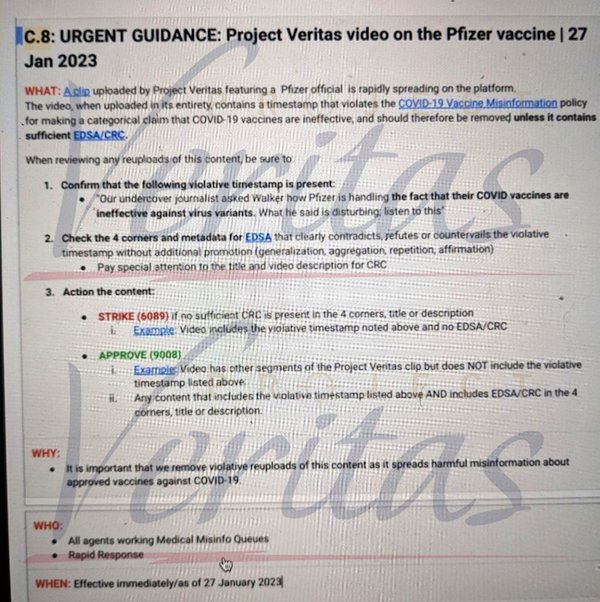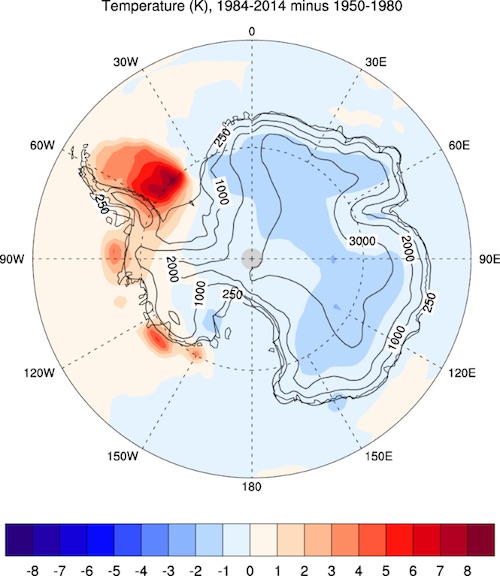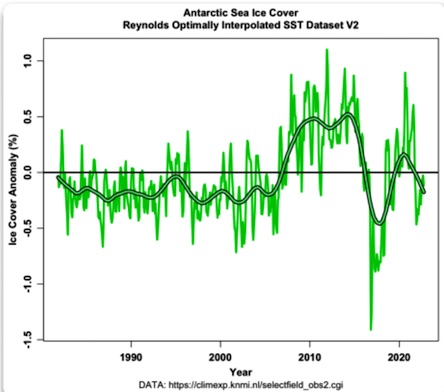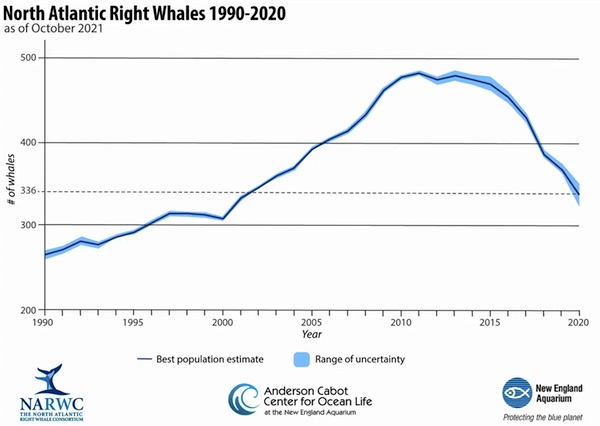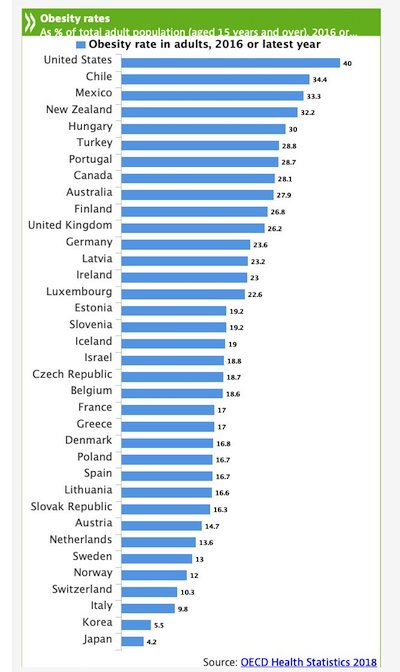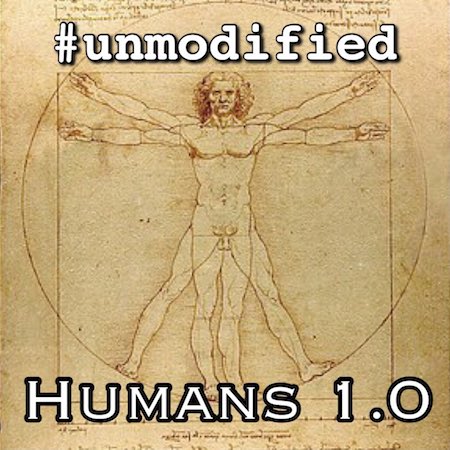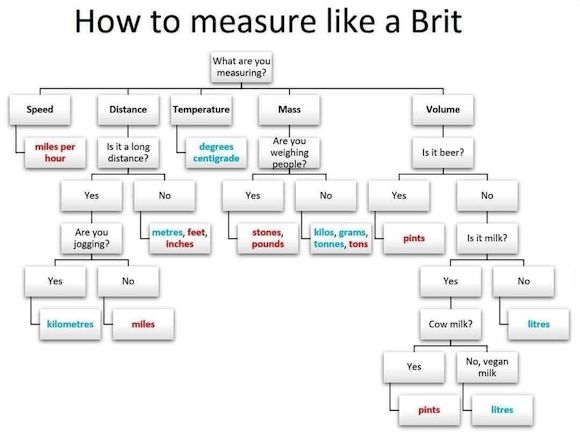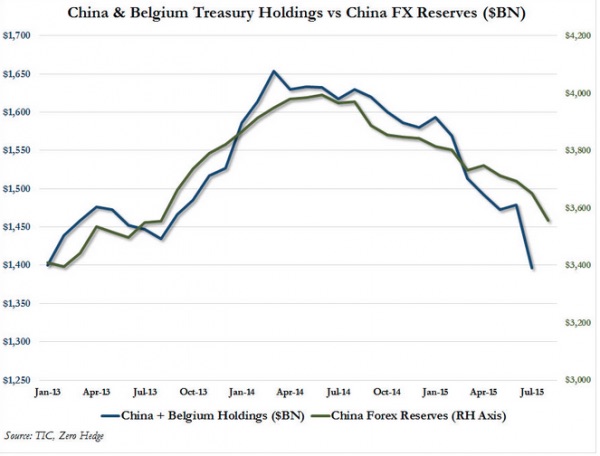
DPC Fifth Avenue after a snow storm 1905



Note that one down for Syriza. It’s the IMF that has the most detrimental impact, getting them out is a very good development.
• EU’s Juncker Wants To Scrap Troika’s Mission To Greece (Reuters)
European Commission President Jean-Claude Juncker wants to scrap the troika mission from international lenders that governs Greece’s €320 billion bailout, German daily Handelsblatt reported, quoting unnamed Commission sources. “We have to find an alternative quickly,” it quoted the sources as saying, in an extract from an article released ahead of publication on Monday. Berlin was also prepared to reform arrangements between the European Commission, ECB and IMF and Athens, seen by its new government as ‘insulting’ to Greek sovereignty, and establish more general economic targets, the paper quoted unnamed German government sources as saying.
However, this would only be possible if Greece accepted the need to stick to previously agreed reform and savings targets, the business newspaper said. The new left-wing government of Greek Prime Minister Alexis Tsipras has said it wants to end the bailout deal and will not cooperate with troika inspectors in Athens. It says it wants to negotiate directly with European authorities and the IMF over a new accord that will allow a reduction in its debt, which is equivalent to more than 175% of its gross domestic product. Juncker, who is due to meet Tsipras in Brussels on Wednesday, has said he was not prepared to accept any direct write-off of Greece’s public debt.
Read more …

More countriess should consider this. Restructuring, jubilee, call it what you want, it as old as society.
• Croatia Just Canceled The Debts Of Its Poorest Citizens (WaPo)
Starting Monday, thousands of Croatia’s poorest citizens will benefit from an unusual gift: They will have their debts wiped out. Named “fresh start,” the government scheme aims to help some of the 317,000 Croatians whose bank accounts have been blocked due to their debts. Given that Croatia is a relatively small Mediterranean country of only 4.4 million inhabitants, the number of indebted citizens is significant and has become a major economic burden for the country. After six years of recession, growth predictions for Croatia’s economy remain low for this year. “We assess that this measure will be applicable to some 60,000 citizens,” Deputy Prime Minister Milanka Opacic was quoted as saying by Reuters. “Thus they will be given a chance for a new start without a burden of debt,” Opacic said earlier this month.
To be eligible, Croats need to fulfill certain criteria: Their debt must be lower than 35,000 kuna ($5,100), and their monthly income should not be higher than 1,250 kuna ($138). Those applying for the scheme are not allowed to own any property or have any savings. Among economists, the scheme is regarded as unprecedented and exceptional. “I can’t think of anything comparable,” Dean Baker at Center for Economic and Policy Research said. Although the program is expected to cost between 210 million and 2.1 billion Croatian kuna ($31 million and $300 million), according to conflicting reports by Austrian press agency APA and Reuters, the Croatian government expects economic long-term benefits that will outweigh the short-term investment.
Prime Minister Zoran Milanovic has convinced multiple cities, public and private companies, the country’s major telecommunications providers, as well as nine banks to clear some of their citizens of their debt. The government will not refund the companies for their losses. Overall, the debt of all Croats amounts to $4.11 billion – and the debt that is about to be wiped out accounts for about 1 to 7% of that. However, for those who are eligible the agreement will make a significant difference by enabling them to gain access to their bank accounts. By reducing debt by less than 10%, Croatia frees nearly 20% of the country’s debtors from their obligations.
Read more …

“Isn’t it the case that using Greece as a laboratory mouse for an austerity experiment has been a failure?”
• Greece’s Problems Result From Eurozone Having No Fiscal Policy (Guardian)
Greece and Germany are on a collision course. Alexis Tsipras’s new Syriza-led government in Athens wants a big chunk of its debt written off. Angela Merkel is saying “nein” to that. If this were a western, Tsipras and Merkel would be the two gunslingers who have decided in time-honoured fashion that “this town ain’t big enough for the both of us”. But this isn’t Hollywood. There is no guarantee that this shootout will have a happy ending. Things look like getting nasty and messy. The five-year crisis in the eurozone has entered a dangerous new phase. How can this be? Isn’t Greece a small country, which accounts for less than 2% of the output of the European Union? Wouldn’t it be relatively easy and not particularly expensive for its creditors to write off its debts, mostly owned by governments or international bodies?
Isn’t it the case that using Greece as a laboratory mouse for an austerity experiment has been a failure? The answer to all three questions is yes. Greece is a small country. Writing off part of its debts or easing the repayment terms would be simple and painless. The obsession with deficit reduction has depressed growth not just in Greece, but in the whole of the eurozone. What’s more, the lesson from the last five years is that those countries that use the euro are paying a heavy price for the lack of a common system for transferring resources from one part of the single-currency area to another. There is one currency and one interest rate, but there is no fiscal union to stand alongside monetary union. So, unlike in the US or the UK, there is no large-scale method for recycling the taxes raised in those parts of the eurozone that are doing well into higher spending for those parts of the eurozone that are doing badly.
Mark Carney pointed out this weakness in a lecture in Dublin last week when he said: “It is difficult to avoid the conclusion that, if the euro were a country, fiscal policy would be substantially more supportive.” The governor of the Bank of England added that a “more constructive fiscal policy” would help mitigate the negative impact that structural reforms have on demand and would be consistent with the longer-term aim of closer integration. All this is music to the ears of Tsipras and his finance minister, Yanis Varoufakis, who will be in London for talks with George Osborne on Monday. Varoufakis, judging by his comments on Newsnight last week, thinks Germany should soften its approach not just because the current policy is not working but also as an act of European solidarity.
Read more …

This will not be denied.
• Greece Asks ECB to Keep Banks Afloat as Debt Deal Sought (Bloomberg)
Greek Prime Minister Alexis Tsipras began the hunt for allies against German demands for austerity as his week-old government appealed to the European Central Bank not to shut off the money tap. Finance Minister Yanis Varoufakis said his country won’t take any more aid under its existing bailout agreement and wants a new deal with its official creditors by the end of May. While Greece tries to wring concessions on its debt and spending plans, it needs the ECB’s help to keep its banks afloat, Varoufakis said at a briefing in Paris late Sunday. “We’re not going to ask for any more loans,” Varoufakis said after meeting his French counterpart, Michel Sapin. “During this period, it is perfectly possible in conjunction with the ECB to establish the liquidity provisions that are necessary.”
Tsipras, who issued a statement Saturday promising to stick by Greece’s financial obligations, is seeking to repair damage after a rocky first week. Bond yields spiraled and banks stocks plummeted after German Chancellor Angela Merkel stonewalled his plans to ramp up spending and write down debt. The Greek leader visits Cyprus on Monday before trips to Rome, Paris and Brussels. He’s not scheduled to see Merkel, the biggest contributor to Greece’s financial rescue, until a EU summit on Feb. 12. Merkel wants to avoid getting drawn into a direct confrontation with Tsipras and is unlikely to agree to a face-to-face meeting with him at next week’s gathering of leaders, according to a German government official who asked not to be named because the discussions are private.
The chancellor’s goal is to show Tsipras that he is isolated, the official said. What’s more, she sees little margin for maneuver on the conditions of any further support for Greece and is skeptical about Tsipras’s claims that he can raise revenue by cutting corruption and increasing taxes on the rich, the official added. “Europe will continue to show solidarity with Greece, as well as other countries particularly affected by the crisis, if these countries undertake their own reforms and savings efforts,” Merkel said in an interview with Hamburger Abendblatt published Saturday.
Read more …

“During this period, it is perfectly possible in conjunction with the ECB to establish the liquidity provisions that are necessary.”
• Greece Wants Special ECB Help While Going ‘Cold Turkey’ on Aid (Bloomberg)
Greece is counting on the European Central Bank to maintain a financial lifeline while the week-old government in Athens negotiates new terms on its international bailout package, Finance Minister Yanis Varoufakis said. While the country is “desperate” for funds, it will forgo further disbursements of emergency aid until negotiating a “new social contract” with its creditors, he said. He set an end-May deadline for reaching a deal on a revamped rescue with the euro area and the IMF. “For that period, we’re not going to ask for any more loans,” Varoufakis told reporters today in Paris after meeting French Finance Minister Michel Sapin. “During this period, it is perfectly possible in conjunction with the ECB to establish the liquidity provisions that are necessary.”
The danger for Prime Minister Alexis Tsipras, who won power on Jan. 25 following pledges to undo more than four years of austerity tied to emergency aid, is that both the country’s banks and the government could be left without funding as soon as next month. Greece has until end-February to qualify for an aid payment of as much as €7 billion and hasn’t indicated any willingness to seek an extension. Letting the review lapse under Greece’s €240 billion aid program could result in its banks effectively being excluded from ECB liquidity operations while the government is still shut out of international bond markets. At the moment, Greece has a special dispensation from the ECB because the country is considered to be complying with the bailout pact. That means its debt can be used in central-bank refinancing operations even though it is rated junk.
“There will be no surprises if we find out that a country is below that rating and there’s no longer a program that that waiver disappears,” ECB Vice President Vitor Constancio said at an event in Cambridge, England, on Saturday. Varoufakis, whose Paris visit was the first of a series of trips to European cities to press his case, said he intends travel to Frankfurt to seek support for Greek banks from the ECB while a political accord on an aid overhaul is negotiated with the euro area and the IMF. He’s scheduled to see British Chancellor of the Exchequer George Osborne in London tomorrow. A revamped rescue for Greece, where unemployment is more than 25%, would address a “humanitarian crisis,” the need for investment and the country’s debt mountain of about 180% of gross domestic product, he said. “What this government is all about is ending the addiction” to funds that are tied to demands for austerity, Varoufakis said. The government is willing to “go cold turkey for a while, while we’re deliberating,” he said.
Read more …

Steve paints a nice protrait.
• My Friend Yanis, The Greek Minister Of Finance (Steve Keen)
I first met Yanis Varoufakis when he was a senior lecturer (the 3rd step in the 5-tiered Australian system, equivalent to a Professor in the USA) at Sydney University in the late 1980s, and I was a tutor (the 1st step) at the University of New South Wales. We’ve been friends ever since, and now he has become globally prominent as the Finance Minister of the most troubled and high profile economy on the planet, Greece. Yanis the man as well as Yanis the economist will come under intense scrutiny and pressure from the media and other politicians now. Much of this will have the intention of either cutting him down, or turning the dilemmas he faces in his serious role into a source of media entertainment. I want to describe the man and economist I know with neither objective in mind.
I’ll start with the man—since without doubt the first attacks on him will focus on his character rather than his intellect. Very few people make so strong an impression on you at first meeting that, decades later, you can still vividly remember the meeting itself. Yanis had such an impact. I went to attend a seminar at Sydney University where Yanis was the presenter. Most academic seminars are dull affairs; despite the fact that being an academic involves effectively being on stage, very few academics actually have stage presence. They will mumble, look around evasively, wander about talking as if in a madman’s monologue, or talk to their slides rather than the audience in what has rightly been called “Death By Powerpoint”. Yanis, in contrast, filled the stage as soon as he began to speak, engaged the audience with direct eye contact, and spoke like an orator rather than a mere academic.
His face also had a perennial wry smile to it, and his presentation included plenty as ironic humour as he pulled apart the conventional wisdom in his own field. That humour – and the penchant for oratorical expression – proved to be intimate aspects of his persona, as well as a general warmth and generosity of spirit towards humanity. Backing that generosity up is substantial strength – physical as well as intellectual and emotional. He can be angered by misanthropic individuals, as I can, but in confrontation with them he will attack their intellectual pretensions rather than the individuals themselves. This is reading like a hagiography, but only because Yanis is a genuinely good man. This was manifested in how he has reacted to the toughest experience in his life: having his daughter taken to Sydney against his will in 2005 by his Australian partner, after his return to Greece in 2000.
Read more …

Angela will not be amused.
• Obama Expresses Sympathy for New Greek Government (WSJ)
President Barack Obama expressed sympathy for the new Greek government as it seeks to rollback its strict bailout regime, saying there are limits to how far its European creditors can press Athens to repay its debts while restructuring the economy. “You cannot keep on squeezing countries that are in the midst of depression. At some point there has to be a growth strategy in order for them to pay off their debts to eliminate some of their deficits,” Mr. Obama said in an interview with CNN’s Fareed Zakaria aired Sunday. He said Athens needs to restructure its economy to boost its competitiveness, “but it’s very hard to initiate those changes if people’s standards of livings are dropping by 25%. Over time, eventually the political system, the society can’t sustain it.” Mr. Obama expressed hope that an agreement would be reached so Greece can stay in the eurozone, saying, “I think that will require compromise on all sides.”
The comments come as Athens’s new antiausterity government begins a push this month to convince eurozone countries to ease the terms under which it received large international financial rescues in recent years. Options include reducing Greece’s budget constraints and debt-service burdens. Relations between Greece and the rest of the eurozone have been rocky since the left-wing Syriza party won Greek elections on Jan. 25. “More broadly, I’m concerned about growth in Europe, ” he added. He said fiscal prudence and structural changes are important in many eurozone countries, but “what we’ve learned in the U.S. experience…is that the best way to reduce deficits and to restore fiscal soundness is to grow. And when you have an economy that is in a free-fall there has to be a growth strategy and not simply the effort to squeeze more and more from a population that is hurting worse and worse.”
Read more …

Big opening.
• France Open to Easing Greek Debt Burden (Bloomberg)
France is ready to offer Greece concessions on its debt to help the country’s new government revive its economy, Finance Minister Michel Sapin said. The French government is willing to discuss ways to ease Greece’s financial burden including extending the maturity of its debt, Sapin said Sunday in an interview with Canal Plus television before meeting with his Greek counterpart Yanis Varoufakis. He ruled out a full write-off and said the French government’s total exposure to Greece is €42 billion. “They say we cancel it, we just cancel it – no,” Sapin said. “We can discuss, we can postpone, we can alleviate. But we won’t cancel it.” The comments may offer encouragement to Greek Prime Minister Alexis Tsipras who begins a tour of European capitals tomorrow as he seeks support for a plan to ease the country’s debt burden to help him pay for a program of public spending to boost gross domestic product.
Tsipras said Saturday that Greece would repay its debts to the European Central Bank and the International Monetary Fund, leaving the focus of any debt reduction on the other euro-area governments. Varoufakis appointed Lazard as adviser on issues related to public debt and fiscal management on Saturday. “There is a range of possible solutions: extending the maturities, lowering interests rates, and the much more radical solution, the haircut,” Matthieu Pigasse, the head of Lazard’s Paris office who has advised Greece in the past, said in a Jan. 30 interview on BFM Business television. “If we could cut the debt by 50%” he said, “it would allow Greece to return to a reasonable debt to GDP ratio.” He said Greece’s debt to public creditors was about €200 billion. “That people in Greece say ‘we need a bit of air’ I can understand that,” Sapin said. “It’s legitimate for them to say we want to discuss how we can lower the weight of this debt.”
Read more …

The FT, on the side of the banks, tries to spread the fear, but “The finance chief said Athens would make proposals within a month for a “new contract” with the euro zone, which would be in place by the end of May.”
• Eurozone Alarm Grows Over Greek Bailout Brinkmanship (FT)
Eurozone officials are increasingly worried that Greece’s brinkmanship over its bailout will plunge the country into financial chaos after its finance minister said on Sunday that it would take up to four months to agree a “new contract” with creditors. Yanis Varoufakis, Greece’s newly appointed finance minister, said Athens would reject any further loans under its international rescue plan, despite Greece’s €172bn bailout expiring at the end of the month. He also said he expected the ECB to prop up the country’s weakened banking system until a longer-term settlement could be reached. Mr Varoufakis said Greece had been living for the next loan tranche for the past five years. “We have resembled drug addicts craving the next dose. What this government is all about is ending the addiction,” he said, noting it was time to go “cold turkey”.
His comments on Sunday underscored the fears of euro zone officials that the Greek government was unaware of the precariousness of its financial situation. “Everybody [in the euro zone] wants a deal,” said one senior euro zone official. “But through their actions and their rhetoric, the new government is making a lot of people upset. They are putting themselves in an impossible situation.” Mr Varoufakis was speaking in Paris on the first leg of a European tour intended to garner support for a renegotiation of its debt burden. Greece’s anti-austerity government roiled markets during a tumultuous first week in power with 40% being wiped off the value of Greek banks following announcements to reverse spending cuts and privatizations.
Despite a more emollient tone from Alexis Tsipras, Greece’s radical left-wing prime minister, over the weekend, EU officials have been dismayed by Athens’ repeated rejection of a bailout extension — and refusal to co-operate with the troika of international creditors. German officials were also irritated at its refusal to engage with Berlin, although Mr Varoufakis said he had now been invited to the German capital. The finance chief said Athens would make proposals within a month for a “new contract” with the euro zone, which would be in place by the end of May. “We are not going to ask for any loans during this period. It is perfectly possible to establish liquidity provisions with the ECB.”
Read more …

The role of women.
• Syriza’s Cleaners Show Why Economics Needs A New Broom (Guardian)
Among the most uplifting images from Syriza’s victory in Greece last week were the elated faces of a small group of fiercely determined women: the public sector cleaners who were laid off during the country’s brutal budget cuts and had been told they would be swiftly re-hired by the new government. The fate of a few low-paid mop operatives is a world away from the cut and thrust of international negotiations on debt relief for Greece. Yet it has so often been the fate of working-class women – standing in the bread queues, scrabbling to feed their families, laid off in their droves in the public sector job cuts mandated by the country’s troika of creditors – that has best illustrated the despair to which many in the recession-ravaged country have been driven.
Syriza had promised that “hope is coming”, injecting the language of emotion into dry debates about deficits and debt repayments. It remains to be seen how successful they will be in the high-stakes negotiation they must now enter with their eurozone partners, under the minute-by-minute scrutiny of the financial markets. But the party’s triumph – and the cleaning women’s plight – underlines the fact that economics is about not just the state of the public finances (improving, in Greece’s case) or GDP (on the up), but raw human experience in homes and families. One lesson from the crises that have roiled the eurozone over the past five-plus years is that anyone who tells you the only response to a public debt crisis is to slash spending and embark on “structural reform” is either masochistic or downright mad.
But we could take a more profound lesson away too, which so far most economists have failed to learn from the Great Recession and its long-drawn-out aftermath: the individualistic, neoliberal perspective on the world that bleaches out humanity in favour of equations needs to be junked too. Margaret Thatcher’s promise in 1979, “where there is despair, let us bring hope”, may have prefigured Syriza’s language, but her arrival in No 10 marked the start of an era in which we have increasingly come to see ourselves as “aspirational”, atomised individuals, scrabbling to make our way in a world without the support of the society Thatcher notoriously dismissed.
This approach was underpinned and apparently vindicated by the proliferation of economic models that conceived of people as cool, rational, drastically simplified robots who beetle around trying to maximise their utility. The market became seen as the ultimate expression of this calculating rationality, and its values – competition, self-interest, even greed – as the fundamental driving forces of life. Behavioural economists have spiced up this dull world with concepts such as irrational exuberance, helping to explain why even financial markets – supposedly the embodiment of hardnosed rationality – can experience moments of madness. And others show why the qualifier ceteris paribus – “all things being equal” – that always applies to these elegant mathematical constructions is a nonsense, because all things are never, ever equal.
Read more …

Economists are incapable of getting their head around the possibility that people may simply not have anything to spend.
• Americans Are Failing To Pump Gas-Price Savings Back Into The Economy (WSJ)
Americans are taking the money they are saving at the gas pump and socking it away, a sign of consumers’ persistent caution even when presented with an unexpected windfall. This newfound commitment to frugality was illustrated this past week when the nation’s biggest payment-card companies said they aren’t seeing evidence consumers are putting their gasoline savings toward discretionary items like travel, home renovations and electronics. Instead, people are more often putting the money aside for a rainy day or using it to pay down debt. That more Americans are saving their bounty at the pump comes as a surprise, because the personal savings rate, after rising during and after the recession, has declined steadily over the past two years. “We haven’t seen the extra savings from lower gas prices translate into additional discretionary consumer spending,” said MasterCard CEO Ajay Banga on a conference call Friday.
The new data are perhaps the best indication to date that the pain of the recession remains fresh in the minds of many Americans, even as the economy picks up steam. The Commerce Department said Friday that the U.S. economy grew at a 2.6% annual rate in the fourth quarter. Personal consumption expenditures rose 4.3% at a seasonally adjusted annual rate in the last three months of 2014, representing the biggest increase since the first quarter of 2006. Also on Friday, the University of Michigan said consumer sentiment in January reached its highest level in 11 years. The closely watched index has increased in each of the past six months, rising 20% since July. But that positive outlook doesn’t mean consumers feel emboldened to splurge with their savings at the pump, and card-company executives said spending growth would have been higher if consumers had put their gas savings toward more big-ticket items rather than savings.
Read more …

“They continue to value production and profit over health and safety, workers and the community.”
• Oil Workers in US on First Large-Scale Strike Since 1980 (Bloomberg)
The United Steelworkers union, which represents employees at more than 200 U.S. oil refineries, terminals, pipelines and chemical plants, began a strike at nine sites on Sunday, the biggest walkout called since 1980. The USW started the work stoppage after failing to reach agreement on a labor contract that expired Sunday, saying in a statement that it “had no choice.” The union rejected five contract offers made by Royal Dutch Shell Plc on behalf of oil companies including Exxon Mobil and Chevron since negotiations began on Jan. 21. The steelworkers’ union hasn’t called a strike nationally since 1980, when a stoppage lasted three months. A full walkout of USW workers would threaten to disrupt as much as 64% of U.S. fuel production. Shell and union representatives began negotiations amid the biggest collapse in U.S. oil prices since 2008.
“The problem is that oil companies are too greedy to make a positive change in the workplace,” USW International Vice President Tom Conway said in the statement. “They continue to value production and profit over health and safety, workers and the community.” Ray Fisher, a spokesman for Shell, said by e-mail on Saturday that the company remained “committed to resolving our differences with USW at the negotiating table and hope to resume negotiations as early as possible.” The USW asked employers for “substantial” pay increases, stronger rules to prevent fatigue and measures to keep union workers rather than contract employees on the job, Gary Beevers, the USW international vice president who manages the union’s oil sector, said in an interview in Pittsburgh in October.
The refineries called on to strike span the U.S., from Tesoro’s plants in Martinez, California; Carson, California; and Anacortes, Washington, to Marathon’s Catlettsburg complex in Kentucky to three sites in Texas, according to the USW’s statement. The sites in Texas are Shell’s Deer Park complex, Marathon’s Galveston Bay plant and LyondellBasell’s Houston facility, according to union. The walkout also includes Marathon’s Houston Green cogeneration plant in Texas and Shell’s Deer Park chemical plant. The refineries on strike can produce 1.82 million barrels of fuel a day, about 10% of total U.S. capacity, data compiled by Bloomberg show. “There will be a knee-jerk reaction in gasoline and diesel prices because we don’t know how long this is going to be or how extended it might be,” Carl Larry, director of oil and gas at Frost & Sullivan, said. “It’ll be bearish for crude, but we’ve already accounted for a lot of the fact that refineries are maintenance.”
Read more …

“Cutbacks aren’t yet reflected in broad data on employment, home sales or tax collections. For example, the federal Bureau of Labor Statistics says that employment in oil and gas extraction rose in December to 216,100, the highest level since 1986.”
• Falling Prices Spread Pain Far Across The Oil Patch (WSJ)
Rumor became reality here last week when dozens of workers lost their jobs at Laredo. The Oklahoma-based energy outfit said it closed its regional office to cope with plunging oil prices. The layoffs were “kind of like a death in the family,” says Robert Silver, age 62, a geophysicist who had helped Laredo decide where to drill in the Permian Basin in West Texas. Trouble has been looming over the oil patch since crude prices began falling last summer, from over $100 a barrel to under $50 today. But only now are the long-feared effects of a bust starting to ripple through the complex energy ecosystem, affecting Houston executives, California landowners and oil old-timers in Oklahoma. Many big energy companies have said they plan to slash billions of dollars in spending along with thousands of jobs; energy giant ConocoPhillips told employees Thursday to expect a salary freeze and layoffs.
Indicators like drilling permits in Texas have fallen sharply. Cutbacks aren’t yet reflected in broad data on employment, home sales or tax collections. For example, the federal Bureau of Labor Statistics says that employment in oil and gas extraction rose in December to 216,100, the highest level since 1986. But fallout is beginning to affect people, starting with the legions working as suppliers to the energy industry. Eric Herschap is COO at Exclusive Energy a private company in Orange Grove, Texas, that offers services, including equipment rentals, to exploration companies. His customers are demanding price cuts of 15% to 25%, and Exclusive offers additional discounts beyond that, he says. So the company laid off 10 of its 45 employees and is cutting bonuses for those who remain. Mr. Herschap says his brightest engineers are now fielding phone calls from customers with technical questions.
Read more …

Casino.
• Oil Companies Draw on Creative Financing to Stay Afloat (Bloomberg)
North America’s small and mid-sized energy companies are searching for creative ways to stay afloat as investors smell blood in the water from the almost 60 percent fall in the price of oil since June. Oil and natural gas companies are straining for solutions before cuts in credit lines and increases in lending rates hit home in April, when banks re-price the collateral used to secure revolving credit lines. Some are turning to more creative forms of financing as familiar sources of money dry up. That financing is coming from hedge funds, private equity shops and mega-wealthy investors like billionaire Carl Icahn who have the cash to weather a prolonged downturn and are on the hunt for deals among the wounded, bankers and analysts say. Oil operators, meanwhile, are laying off staff, freezing salaries and deferring investments to conserve cash.
“Companies have lived in a state of outspending cash flow, and the markets have facilitated that,” said Gregory Sommer at Deutsche Bank “But if prices persist at this level, you’re going to see some companies pulling back significantly” more than they already have. Eclipse turned to private equity investors in December after the cost to issue unsecured debt to fund capital spending became prohibitively expensive, according to Matthew DeNezza, the company’s chief financial officer. “Traditional, high-yield debt markets were not available” at reasonable prices, DeNezza said in a telephone interview. “The debt markets were closed to us.” Shares of the driller have fallen by 77% since it raised $818 million in its initial public offering on June 20, when U.S. oil prices were $107 a barrel.
In a deal announced three days before the new year, Eclipse sold $325 million in additional equity to its largest investor, EnCap Investments, and brought in extra money from private-equity firm KKR & Co. to help fund drilling operations in 2015, DeNezza said. Private equity investors, he said, can look past the market turmoil and “take a longer term view of what these assets are really worth.” The firms have already raised $15 billion for general energy investing in recent years. Carlyle Group LP, Apollo Global Management LLC, Blackstone Group LP and KKR are raising billions more for new funds created in the past few months to invest in distressed oil producers.
Read more …

As staff gets fired, “Bob Dudley, BP’s chief executive, is expected to further sweeten the pill for investors by making no changes to the dividend..”
• BP To Follow Shell In Cutting Spending (Guardian)
BP will on Tuesday unveil plans to slash billions of pounds off its capital spending programme in a bid to counter the impact of plunging oil prices and a 40% fall in its fourth quarter profits. The company, which has already cut hundreds of jobs in Aberdeen and thousands around the world, is expected to announce spending reductions of over 10% bringing the official target below $22bn for 2015. Bob Dudley, BP’s chief executive, is expected to further sweeten the pill for investors by making no changes to the dividend while not making any further specific redundancies. BP said in December that it was taking a $1bn charge to pay for restructuring – almost all for job cuts – and has since made local announcements about new staffing levels in Houston, Trinidad and Azerbaijan. The latest cost-reductions come as BP is expected to report profits of around $1.5bn for the last three months of its financial year.
Peers such as Shell will reduce expenditure by $15bn over the next three years, Chevron is to cut 13% of spending to $35bn after reporting a 30% plunge in final quarter earnings, while ConocoPhillips slashed its capital expenditure by 33% to $11.5bn. ExxonMobil, the world’s largest quoted oil company, will also unveil its strategy for dealing with a Brent blend oil prices which has fallen to around $50 a barrel from $115 in June last year. BP’s previous target was to spend between $24bn and $25bn in 2014 although the final outturn for the year was expected to have already fallen to $23bn and the company is now expected to try to ensure the official target in 2015 is even lower. The company is particularly vulnerable to lower commodity prices because it is still suffering financially from ongoing fallout from the Deepwater Horizon accident of 2010 in the Gulf of Mexico and from its risky investments in Russia.
Read more …

As if it hasn’t yet?!
• China’s Feeling the Pressure to Join Global Easing (Bloomberg)
The case for China to join the latest wave of global monetary easing has increased, with a manufacturing gauge signaling the first contraction in more than two years. The government’s Purchasing Managers’ Index fell to 49.8 last month from 50.1 in December, missing the median estimate of 50.2 in a Bloomberg survey of analysts and below the 50 level separating expansion and contraction. The slide follows the biggest weekly stock market drop in a year and fiscal data that showed the weakest revenue growth since 1991. Central banks from the euro zone to Canada and Singapore last month added monetary stimulus as slumping oil prices damp the outlook for inflation and global momentum outside the U.S. moderates.
China’s central bank, which cut interest rates in November for the first time in two years, has since added liquidity in targeted measures rather than with follow-up rate reductions or cuts to banks’ required reserve ratios. “We expect such data will weaken further and push the government to take further easing actions,” said Zhang Zhiwei, chief China economist at Deutsche Bank in Hong Kong. Zhang and Lu Ting of Bank of America have been among economists who said the People’s Bank of China would delay lowering banks’ RRRs for risk of stoking an equities bubble. The benchmark Shanghai Composite Index fell for a fifth day and was 2% lower at 10:17 local time. The yuan weakened.
Seasonal reasons, falling commodity prices, and weak domestic and international demand caused the decline in manufacturing PMI, Zhao Qinghe, senior statistician at NBS, said in a statement on the bureau’s website. Most sub-indexes fell, including new orders and new export orders. The sub-index of raw material purchasing prices decreased to 41.9, the lowest in at least a year, on the decline in commodity prices “China’s manufacturing sector is still facing de-leveraging pressure,” said Liu Li-Gang, head of Greater China economics at Australia & New Zealand Bank in Hong Kong. “Deflation in the manufacturing sector continues and the destocking process has not yet completed.”
Read more …

In the end, it’s all just words. ‘Whatever it takes’ worked wonders too, after all.
• ECB Bond-Buying Plan Has Investors Questioning How It All Works (Bloomberg)
Mario Draghi’s trillion-euro puzzle is missing some key pieces. When the European Central Bank president announced a program on Jan. 22 to buy €60 billion of assets a month for at least 19 months to avert deflation, he surprised investors with the size of the stimulus. He also provided more details than anticipated. Yet analysts poring over the ECB’s statements are finding that several critical points remain unclear. “The ECB had to present a lot of details right from the beginning as they wouldn’t have been credible without them,” said Johannes Gareis at Natixis. “What is missing somewhat is the fine print, which might have quite an impact on the implementation.” Here’s what the ECB has and hasn’t revealed about Europe-style quantitative easing.
What will the asset mix be? The ECB’s monthly spending will include its existing programs to buy covered bonds and asset-backed securities. Of the added purchases, Draghi said 12% will be debt issued by European Union institutions and agencies, and the rest will be government bonds. The question is: how much does the ECB envisage spending on each type of asset? Draghi also said officials will buy bonds with maturities from 2 years to 30 years, without specifying an average target that could affect yield curves and borrowing costs. And while the central bank said eligible debt includes inflation-linked bonds, floating-rate notes and securities with a negative yield, it hasn’t given any indication of what the breakdown of purchases might be.
How transparent will the purchasing be? The ECB hasn’t said much about the mechanics of QE. When it bought sovereign debt from 2010 to 2012 under its now-halted, and far smaller, Securities Markets Program, it dipped into the market without prior announcement. ABS and covered-bond purchases are carried out by external asset managers. Those strategies contrast with the Federal Reserve, which issued a calendar for when it would make purchases under its QE programs and what type of securities it would buy. A public calendar would “ensure greater transparency and minimize market distortion,” said Riccardo Barbieri Hermitte at Mizuho in London.
Read more …

More recalls than sales.
• Automakers Can’t Make Air Bags Work (Bloomberg)
U.S. regulators’ push for a second recall of 2.1 million cars and trucks whose air bags could go off while driving delivered more cautionary tales about a complex life-saving technology that’s had a very bad year. The National Highway Transportation Safety Administration held an unusual Saturday press briefing to warn the public that an earlier recall of nine models from Fiat Chrysler, Honda and Toyota didn’t work entirely. The agency is asking vehicle owners who haven’t completed the first repair to do so now. That may mean a second trip to the dealership for consumers, assuming replacement parts for the new fix are available, which they may not be until year-end.
Added to the mix: Some of the cars being recalled for a second time were part of last year’s massive 10-automaker recall of Takata air bags for a different defect: inflators that could explode with deadly results. “If you own an affected vehicle, this means driving around with the knowledge your air bag might still randomly deploy,” said Karl Brauer, a senior analyst at Kelley Blue Book. “And just to keep it interesting, some of these vehicles are equipped with Takata air bags, meaning the random deployment could include metal shrapnel. What a mess.” It’s the biggest challenge to the technology since the mid-1990s, when NHTSA began investigating reports that first-generation air bags deployed with such force that children and small adults riding in front seats were being killed and, in some cases, decapitated.
“TRW is supporting its customers in these recalls fully, and will cooperate with NHTSA and provide information to the agency if requested,” John Wilkerson, a spokesman for TRW, said in an e-mailed statement. About 1 million of the Honda and Toyota vehicles listed on Saturday were previously recalled for defective Takata air bags, the agency said. “This is unfortunately a complicated issue for consumers, who may have to return to their dealer more than once,” said NHTSA Administrator Mark Rosekind. “But this is an urgent safety issue, and all consumers with vehicles covered by the previous recalls should have that remedy installed.” General Motors recalled at least 7 million vehicles in North America last year to fix faulty ignition switches that could cut power and disable air bags.
Read more …

“At some point, Denmark may well decide the fight isn’t worth it.”
• Currency War Claims Another Casualty: Denmark (Bloomberg)
After half a decade of growing ever sleepier, the currency market has started the year with its most volatile period since 2011. As the victims of the Swiss franc detonation lick their wounds, Denmark is battling to avoid its krone becoming the next victim of the global currency wars, wielding a combination of negative interest rates plus market interventions to sell its own currency plus scrapping government bond sales as it defends its peg to the euro. I’ve seen this movie before; it never ends well. Denmark sprang a rate-cut surprise last week; the central bank will now charge you 0.5% for the privilege of having kroner on deposit. The bank’s third easing in less than two weeks came after it spent as much as 100 billion kroner ($15 billion) this month trying to weaken its currency, according to estimates by Scandinavian lender Svenska Handelsbanken. Taking on traders is an expensive business.
The Swiss National Bank reminded us a fortnight ago that nothing is ever truly sacred in financial markets, abandoning its cap to the euro just days after declaring the policy sacrosanct. Since then, keeping the Danish krone close to a central rate against the euro of 7.46 – the official wiggle room is a 2.25% corridor around that level, the actual room for maneuver has been more like 1% – has kept the central bank’s trading desk busy. The central bank shocks have certainly come thick and fast this year, from the European Central Bank finally getting religion on quantitative easing, to the Federal Reserve adding “international developments” to its list of metrics to watch, to the deployment of negative official interest rates as a deterrent to speculators. No wonder overall volatility in foreign exchange has spiked higher.
The genesis of the present currency war is the desire of every country for a weaker currency to boost exports and growth. That, of course, can’t happen, any more than you can mix heavy-metal music by making everything louder than everything else. So far, Denmark is a casualty of these wars, wounded but still in the fight. Economists are betting, though, that it will need to drive interest rates even further into negative territory to prevent speculators from bidding up the currency, which effectively punishes the nation’s savers. At some point, Denmark may well decide the fight isn’t worth it.
Read more …

Yes.
• Is Reserve Bank of Australia The Next Central Bank To Ease? (CNBC)
Speculation is high that the Reserve Bank of Australia (RBA) will be the next central bank to ease monetary policy at its meeting this week following a month of surprise policy changes across the globe. January saw unexpected loosening measures from a handful of central banks including Denmark, India and Singapore against a backdrop of increasing deflationary pressures as crude oil prices continue their descent. “Judging by price action in the market, there is a real belief the RBA are going to join New Zealand, Europe, Denmark, Switzerland and Canada in easing policy,” said Chris Weston, chief market analyst at IG in a note last week, adding that swaps markets are now pricing a 65% chance of a rate cut.
The RBA has held rates at 2.5% since August 2013. Many analysts expect the RBA to announce a 25 basis-point interest rate cut at Tuesday’s policy meeting to tackle 6% unemployment and sliding iron ore prices, one of the country’s biggest exports. Comments by Australian journalist Terry McCrann last week that a rate cut is “almost certain” heightened expectations, sending the Australian dollar to fresh five-and-a-half year lows at 77.22 U.S. cents on Friday. McCrann, a long-time RBA watcher, reasoned that the RBA will forecast inflation to be lower than the mid-point of its 2-3% target range, opening the way for further easing.
Read more …

“The official rate is at 6.3 bolivars to the dollar… The black market rate, though, was at about 190 bolivars to the dollar on Sunday..”
• US Companies Face Billions In Venezuela Currency Losses (Reuters)
At least 40 major U.S. companies have substantial exposure to Venezuela’s deepening economic crisis, and could collectively be forced to take billions of dollars of write downs, a Reuters analysis shows. The companies, all members of the S&P 500, and including some of the biggest names in Corporate America such as autos giant General Motors and drug maker Merck, together carry at least $11 billion of monetary assets in the Venezuelan currency, the bolivar, on their books. The official rate is at 6.3 bolivars to the dollar and there are two other rates in the government system – known as SICAD 1 and SICAD 2 – at about 12 and 50. The black market rate, though, was at about 190 bolivars to the dollar on Sunday, according to the website dolartoday.com.
The problem is that the dollar value of the assets as disclosed in many of the companies’ accounts is based on either the rates at 6.3 or 12 and only a limited number of transactions are allowed at those rates. The assets would be worth a lot fewer dollars at the 50 rate in the government system and the dollar value would almost be wiped out at the black market rate. The currency system is also about to be shaken up following an announcement by Venezuela President Nicolas Maduro on Jan. 21, leading to fears of a further devaluation. American companies will also have additional exposure to the bolivar that isn’t disclosed because they don’t see the size of that exposure as material to their results. The Reuters analysis also doesn’t look at the thousands of publicly traded and private American companies that aren’t in the S&P 500 and will in some cases have bolivar assets.
Read more …

Bring home the buck.
• Fleeing Capital Clips Wings On US Yields (CNBC)
The relentless fall in longer term U.S. Treasury yields doesn’t signal declining U.S. inflation expectations, but instead is a side effect of funds fleeing low yields elsewhere, say analysts. “Yields of U.S. Treasury’s have actually become increasingly appealing relative to those of government bonds in other developed countries,” Capital Economics Chief Markets Economist John Higgins said in a note published last week. “Increased appetite from overseas investors” have contributed – along with the now-phased out asset purchases by the Federal Reserve and extra demand from banks in response to the launch of Basel 3 – to the downward pressure on U.S. Treasury yields, he said. At the longer end, 10-year Treasury yields broke below the key 1.7% level and closed at 1.6329%.
The 10-year Treasury’s are just a tad off levels seen in early March 2013, before the Fed first broached the idea that it would begin tapering its purchases of Treasury’s, a process it completed in October of last year. The 30-year was seen at 2.2229%, close to a record low. In comparison, massive central bank bond purchase operations in Japan and Europe have sent yields tumbling, especially in Germany and Japan, where they are still hovering around record lows: the 10-year German bund yields just 0.304% and the 10-year Japanese Government Bonds (JGB) are at 0.290%. At the 30-year end, German yields are at 0.887% and its Japanese equivalent at 1.280%. Another central bank joined in two weeks ago – yields on Swiss government bonds sunk into the negative after a surprise rate cut and scrapping of its currency peg to the euro.
Read more …

“Given Washington’s current political division, much of what will be laid out on Monday is unlikely to become law.”
• Obama Targets Foreign Profits With Tax Proposal (Reuters)
President Barack Obama’s fiscal 2016 budget will seek new taxes on trillions of dollars in profits accumulated overseas by U.S. companies, and a new approach to taxing foreign profits in the future, but Republicans were skeptical of the plan on Sunday. Reviving a long-running debate about corporate tax avoidance, Obama will target a loophole that lets companies pay no tax on earnings held abroad, the White House said. But his proposal was certain to encounter stiff resistance from Republicans. In his budget plan to be unveiled on Monday, Obama will call for a one-time, 14% tax on an estimated $2.1 trillion in profits piled up abroad over the years by multinationals such as General Electric, Microsoft, Pfizer and Apple.
He will also seek to impose a 19% tax on U.S. companies’ future foreign earnings, the White House said. At present, those earnings are supposed to be taxed at a 35-percent rate, but many companies avoid that through the loophole that defers taxation on active income that is not brought into the United States, or repatriated. The $238 billion raised from the one-time tax would fund repairs and improvements to roads, bridges, transit systems and freight networks that would replenish the Highway Trust Fund as part of a $478 billion package, the White House said. The annual budget proposal is as much a political document as a fiscal roadmap, requiring approval from Congress. Given Washington’s current political division, much of what will be laid out on Monday is unlikely to become law.
Read more …











